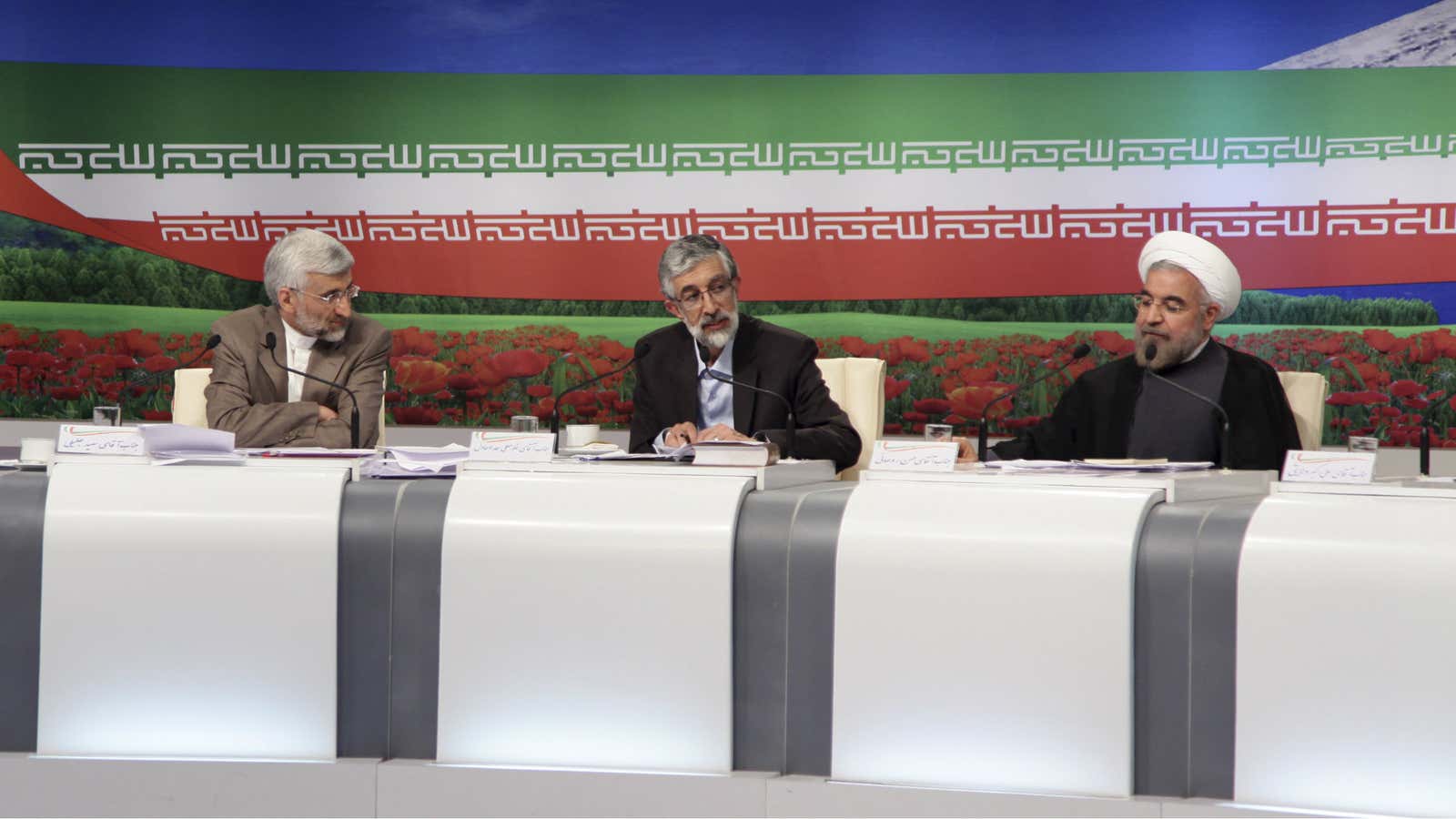If you look solely at social media, Iranians seem to have a clear favorite in today’s presidential election—reformist-backed Hassan Rohani, a 64-year-old cleric and former nuclear negotiator. That is according to Ali Reza Manouchehri, an Iranian-American businessman who has a team running software that tracks the attention users in Iran pay to the candidates on Twitter, Instagram and Facebook.
Manouchehri, who owns a Reston, Virginia-based technology contracting firm called MetroStar Systems, says he began to track Iranian social media commentary on June 5 using a tool called Zoomph. The program detects tweets, photos or comments associated with the candidates, and ranks how much they are retweeted, mentioned or forwarded on. The result are “units of attention,” which Manouchehri equate with election-day popularity.
As of last evening, Rohani was far ahead with 45,825 units of attention. Second was Mohsen Rezai, a former chief of the Revolutionary Guard, with 23,806, a performance that surprises Manouchehri given the candidate’s result in the 2009 election—he finished with 2% of the vote—and his security background. “But on-line he sounds like a moderate and as the most honest of the candidates,” Manouchehri told me. Third in units of attention is Said Jalili, a hard-line protégé of supreme leader Ali Khamenei, with 15,448.
Analysts regard Jalili as the favorite given his close relationship with Khamenei, although the prevailing opinion is that no one will win the 50% vote required to avoid a runoff. After reformist candidate Mohammad Reza Aref withdrew from the race, leading reformists such as former presidents Mohammad Khatami and Akbar Hashemi Rafsanjani threw their support to Rohani.
Aref’s numbers on Zoomph dwarf those of his former rivals—they were at 138,264 this evening. But that highlights an admitted weakness in Zoomph—supporters of Jalili are less likely to use social media. Manouchehri concedes that fact, but he remains convinced that Rohani will win the popular vote.
